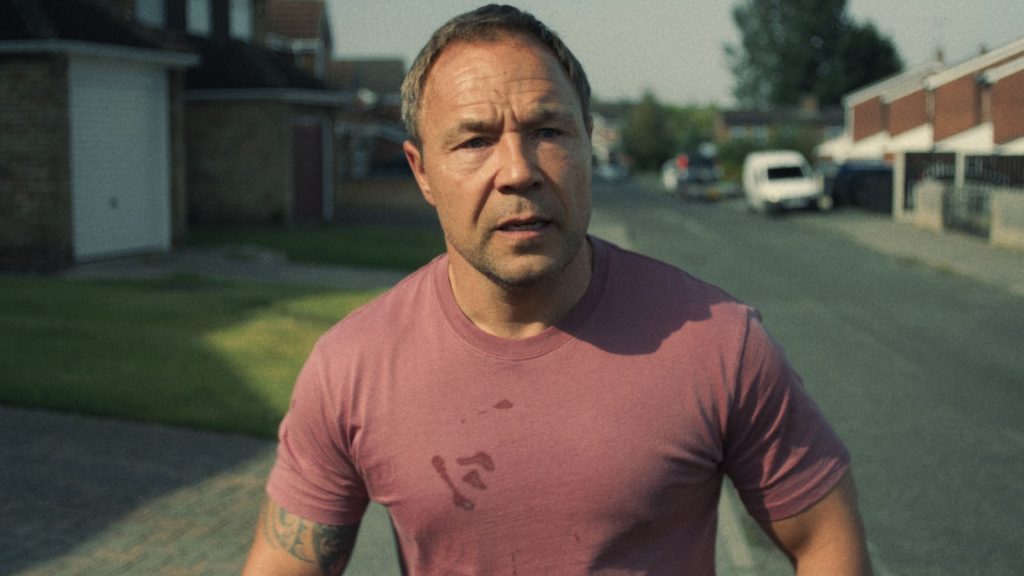“Is all this for just us, then?”
Just minutes before, Stephen Graham walked into a Middle Eastern restaurant in midtown Manhattan, introduced himself with a handshake, and promptly excused himself to the restroom. Earlier in the day, the robust British actor, known for his roles as gangsters, appeared on a morning talk show after a previous night’s chat with Jimmy Fallon. Soon, Graham would be leaving for a live radio interview. As he settled into a small corner table, he suddenly spotted an impressive tray of dips on a raised stand. His expression lit up, radiating a blend of childlike excitement and relief, as he exclaimed in his Liverpudlian accent, “Awright then, let’s have us a conversation, shall we?”
Graham’s plans to join the discussion in New York were unexpected; he had arranged to speak via Zoom a week earlier. However, after the release of Adolescence, a four-part limited series created by Plan B and his own production company, Matriarch, everything changed. The series, showcasing the story of a 13-year-old boy (played by Owen Cooper) arrested for murder, rapidly gained popularity, becoming Netflix’s most viewed show over the weekend and sparking critical acclaim and discussions on incel culture’s influence on young males. Graham, who plays a significant role in three of the four episodes and co-wrote the series, was soon inundated with requests for personal appearances, unaware of the global impact it would have just days after its debut.
“I received a message from a friend saying Adolescence is making waves in India,” he shared. “My first thought was, ‘Hold on… did you say India?!’ It’s making an impression there, and it seems to resonate in many places. When we started this project, it felt very local, but it’s like we’ve thrown a stone into a pond, and the ripples have been incredible.”
Graham elaborates that the idea for Adolescence emerged during a car ride, tracing its roots back to a conversation with his friend, filmmaker Philip Barantini, who sought advice about directing. After declining to appear in Barantini’s initial film project, Graham motivated him to return with future concepts. When Barantini showcased his short film about a boxer battling mental health issues, Graham was inspired to join him in a new project where Barantini would direct, based on his restaurant experiences, filmed in a single take.
This short project eventually became Boiling Point, Barantini’s acclaimed full-length feature shot in a continuous manner. Following its success, Plan B approached Graham about creating a television series with a similar concept involving eight episodes filmed in one shot. Initially hesitant, Graham shared his thoughts with Barantini during a post-award show car trip, where the duo brainstormed the idea that would evolve into Adolescence.
As Graham recalls, he was inspired by real incidents involving violent crimes committed by young men, which he felt needed to be addressed. His concept involved depicting the arrest of a teenager accused of murder, exploring diverse perspectives on the tragedy, and presenting the stories within distinct genres, executed in real time to maintain an immersive experience. Collaborating closely with screenwriter Jack Thorne, Graham integrated their ideas into the script, which substantiated the narrative’s multifaceted character depth.
Graham emphasized that his inspiration for Adolescence stemmed from his early exposure to British television’s socially relevant dramas, which tackled genuine issues affecting working-class individuals. His intent was not to create a commercial success but to resonate with contemporary societal concerns surrounding young men. “We have to start the conversation about this,” he expressed, hopeful that the series would mark the beginning of an essential dialogue on these pressing topics.



